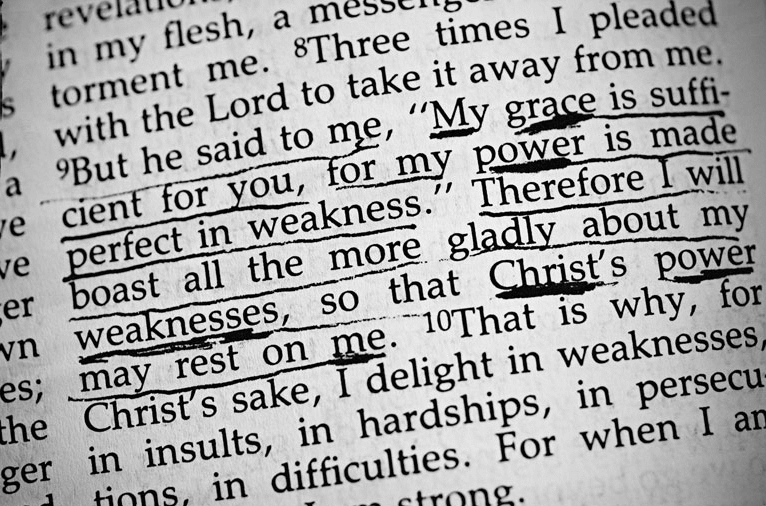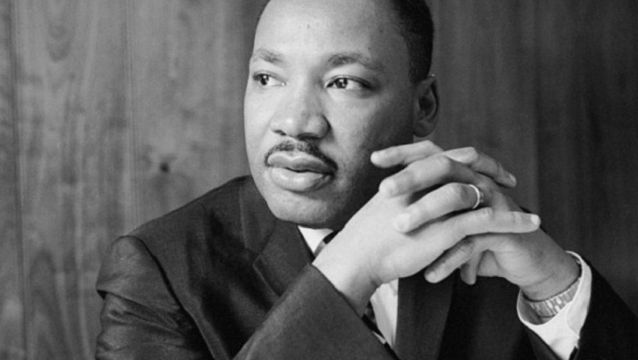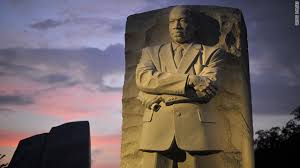 weakness
weakness Power, Perfected
 Friday, February 5, 2016 at 01:48PM
Friday, February 5, 2016 at 01:48PM  Do we really believe God’s power is perfected in weakness? To those with hopes of powerful ministry the scripture asks of us, “What price are you willing to endure?” The apostle Paul, God’s great herald, was weakened and battered by beatings, shipwrecks, bandits and hunger. He became an object of scorn among the very people he tried to help: people from one of his own churches said of him, “His bodily presence is weak, and his speech contemptible.“ He was not only endangered and rejected by men, he was targeted by the Devil, tormented by a messenger of Satan. Three times Paul asked the Father to remove this curse.
Do we really believe God’s power is perfected in weakness? To those with hopes of powerful ministry the scripture asks of us, “What price are you willing to endure?” The apostle Paul, God’s great herald, was weakened and battered by beatings, shipwrecks, bandits and hunger. He became an object of scorn among the very people he tried to help: people from one of his own churches said of him, “His bodily presence is weak, and his speech contemptible.“ He was not only endangered and rejected by men, he was targeted by the Devil, tormented by a messenger of Satan. Three times Paul asked the Father to remove this curse.
God’s answer? “My grace is sufficient for you, for power is perfected in weakness.”
While God’s answer might have crushed others, Paul embraced it to the full: “Most gladly, therefore, I will rather boast about my weaknesses, so that the power of Christ may dwell in me. Therefore I am well content with weaknesses, with insults, with distresses, with persecutions, with difficulties, for Christ’s sake; for when I am weak, then I am strong.” (2 Corinthians 12:9-10)
Let’s look at the perfection of beauty, Jesus. Can we see in him what we learn from Paul? Of course, only more so: Jesus, King of Kings and Prince of Peace, perfected his strength in weakness.
He was:
Weak as an infant, newborn
Weak in exile as a youth
Weak in the labor and sweat of daily work
Weak as one rejected by those he came to save
Weak as one betrayed by a close friend
Weak as one falsely charged and arrested
Weak as one beaten and mocked by the stewards of the law
Weak as one stripped naked and lifted up in public
Weak as one who asked, “Why have you forsaken me?”
Weak as one who died a curséd death
And what strengths were perfected in such a humble Lord?
Strong as one who laid aside his rights as God
Strong as one who made all things, yet had no place to lay his head
Strong as one fatigued by the heat of the day, yet still served others
Strong as one content in the Father’s praise
Strong as one who drank the bitter cup reserved only for him
Strong as an innocent man who refused to plead his case
Strong as one whose stripes healed the wounds of the world
Strong as one whose scars of shame became the marks of glory
Strong as one who placed his spirit into the hands of God, declaring, “It is finished”
Strong as one resurrected by God, who sits enthroned forever over all creation
Why I Wrote "Deeper Grace"
 Tuesday, February 2, 2016 at 04:30PM
Tuesday, February 2, 2016 at 04:30PM  Set aside the question of Heaven or Hell when we reach the afterlife: what about Heaven or Hell while we live? It’s only by God’s grace that we reach Heaven, but the good news is better than we know: by God’s grace Heaven can reach us. The scripture teaches we are saved by grace. Grace begins the work of salvation in here-and-now and completes whatever is left undone in the there-and-then. Both flow from the indispensable grace of God. The world needs grace. We need grace. I need grace. Not for my last breath but for every breath.
Set aside the question of Heaven or Hell when we reach the afterlife: what about Heaven or Hell while we live? It’s only by God’s grace that we reach Heaven, but the good news is better than we know: by God’s grace Heaven can reach us. The scripture teaches we are saved by grace. Grace begins the work of salvation in here-and-now and completes whatever is left undone in the there-and-then. Both flow from the indispensable grace of God. The world needs grace. We need grace. I need grace. Not for my last breath but for every breath.
The fabric of everyday life is alive with the grace of God. Grace forgives, but it also guides. Consider these amazing words from Titus 2:11-12: “For the grace of God has appeared, bringing salvation to all men, instructing us to deny ungodliness and worldly desires and to live sensibly, righteously and godly in the present age . . .” In these words we can hear the full symphony of God’s grace in three movements:
Grace for Salvation: This is the gospel we know. God’s grace reaches everyone, because no one can reach God by his or her own efforts. The melody of God’s grace sings in every language, for all peoples, at all times. God loves the world. He always has and always will. By his grace we are saved because in Jesus God paid every debt: past, present, and future. But grace goes beyond the song we first learned.
Grace to Deny Ungodliness: By grace we are not defenseless against sin’s call. The same grace that saves can also teach, instructing us how to say “no” to worldly desires. True, there will be times when we stumble and fall into sin, but we are more than sinners in need of grace, we are saints lifted out of sin’s power. If we wait until we’ve sinned to call upon the grace of God, we’ve squandered the greater part of grace. Grace restores, but it also leads us on.
Grace to Live Godly: Not only does God’s grace instruct us to deny ungodly ways: it teaches us the how-to of life: how to life sensible, upright, and godly lives in this present age. God’s grace is about more than repair; it is also about preparation. The scripture describes the Christian life as a journey from glory to glory. We are called to be conformed to the image of God's Son. We need grace not because our sin is so great but also because our destiny is so grand. We are called children of God—and that is what we are!
How will the watching world see a demonstration of the grace of God? This is how the Kingdom of God comes to earth: through the lives of grace-filled believers. The Kingdom glides in on wings of grace. The Kingdom brings righteousness, peace, and joy—and best of all the gracious Holy Spirit leads us to experience (and share) these three in everyday life. The Kingdom is never attained; it is received. How will we receive the grace of the Kingdom today?
Time and again the apostle Paul urged his friends to lift their vision higher and closer. There's grace for salvation; there's also grace for transformation. Grace helps us discover the source of all growth in Jesus, and the foundations of life with Christ. God’s grace is the wellspring of spiritual formation, but too often we have shortened “Grace” to mean only forgiveness. Grace can bring more than forgiveness; it can bring change. Disciples use grace as the fuel for transformation.
We need a greater grace. Grace reminds us again of the wealth of Heaven available to every student of Jesus.
"Deeper Grace" ~ The Connection Between Grace and Discipleship, is Now Available at Amazon
 Saturday, January 30, 2016 at 10:31AM
Saturday, January 30, 2016 at 10:31AM  It's about finding grace beyond forgiveness; finding grace for change. I think Deeper Grace will bring hope for many people who struggle with spiritual formation.
It's about finding grace beyond forgiveness; finding grace for change. I think Deeper Grace will bring hope for many people who struggle with spiritual formation. Most Christians see grace as a repeatable, sin-cleansing bargain. They find themselves repeating the sin-forgiveness-sin cycle over and over again because they’ve missed God’s greater grace. Ray Hollenbach’s new book is about discovering the practical empowerment of grace for discipleship: grace that not only saves, but transforms.
Grab a copy for yourself, or to impact your church community: if you’ve longed to instill a culture of discipleship in your church, the Deeper Grace book is one vital step in that direction. Or talk to Ray about hosting a Deeper Grace seminar at your church.
Endorsements:
 "Ray Hollenbach has been a significant voice in my spiritual life. Over the years his books, messages, and friendship have been a consistent and challenging inspiration for me as a disciple of Jesus." ~ John Mark McMillan, songwriter, singer, and church leader.
"Ray Hollenbach has been a significant voice in my spiritual life. Over the years his books, messages, and friendship have been a consistent and challenging inspiration for me as a disciple of Jesus." ~ John Mark McMillan, songwriter, singer, and church leader.
(Click the pic to hear a brief word from JM)
"Ray Hollenbach knows how to be a disciple and how to make disciples. More important, he can energize your church to do the same.” ~ Happy Leman, The Vineyard Church, Urbana, IL
We Revere The Prophet Too Late
 Monday, January 18, 2016 at 08:47AM
Monday, January 18, 2016 at 08:47AM  Everyone reveres the prophet after he’s dead. But in his own day the prophet is rejected, ridiculed, scorned, misquoted, misunderstood, vilified, and in some cases shot in the head.
Everyone reveres the prophet after he’s dead. But in his own day the prophet is rejected, ridiculed, scorned, misquoted, misunderstood, vilified, and in some cases shot in the head.
Today is Dr. Martin Luther King, Jr. Day in the United States. In predictable Biblical tradition we have honored the prophet after he’s gone, and in short order have reduced the honor to an innocuous three-day weekend for federal employees and school children. In honor of Dr. King retailers like WalMart, Kohls, Kmart, and Toys R Us all offer fantastic deals of up to 75% off! We honor the prophet by buying more stuff.
Jesus railed against the powerful religious tendency to ignore the word of God when it is living and active, while building cold stone monuments to the word after the voice is silent. Jesus understood this dynamic well:
“Woe to you, teachers of the law and Pharisees, you hypocrites! You build tombs for the prophets and decorate the graves of the righteous. And you say, ‘If we had lived in the days of our ancestors, we would not have taken part with them in shedding the blood of the prophets.’ So you testify against yourselves that you are the descendants of those who murdered the prophets. Go ahead, then, and complete what your ancestors started!” (Matthew 23: 29-31)
Even when Dr. King’s words are Googled and repeated in civic ceremonies, we listen to them with selective hearing and digest the sound bites like hors d’oeuvres at the reception afterward. But the words of the prophets were never meant to go down easy, even for those who agree with them.
Nearly every schoolchild can tell you Dr. King “had a dream,” but perhaps only one in ten can articulate that dream.
For example when Dr. King declared on the steps of the Lincoln Memorial, “I have a dream that my four little children will one day live in a nation where they will not be judged by the color of their skin, but by the content of their character,” we rally to the idea that no one should be judged by the color of their skin, but we gloss over the part of the dream where we are all judged by the content of our character. The prophet denounced racism while reminding all of us that our character will be judged.
Perhaps we could honor Dr. King’s memory with a simple and sobering meditation today: will I hear all of God’s word–or only that portion that goes down easy? If we are willing to hear all of the word, the day will come when we can hew a stone of hope out of the mountain of despair.
Who Will Help Bury Your Dead?
 Tuesday, January 12, 2016 at 03:27PM
Tuesday, January 12, 2016 at 03:27PM  Part of Genesis’ beauty and power is its narrative. Genesis tells a grand story—indeed, it actually tells only the first chapter in the grandest story ever told. It’s a narrative, inspired by the Holy Spirit, true in the truest possible way.
Part of Genesis’ beauty and power is its narrative. Genesis tells a grand story—indeed, it actually tells only the first chapter in the grandest story ever told. It’s a narrative, inspired by the Holy Spirit, true in the truest possible way.
Sometimes one or two passages invite us to stop and reflect on what we’ve read. These verses are like Selah in the Psalms: pause, and think about that. Here are two refrains from Genesis worthy of our reflection:
Abraham breathed his last and died in a ripe old age, an old man and satisfied with life; and he was gathered to his people. Then his sons Isaac and Ishmael buried him in the cave of Machpelah . . . (Genesis 25:8-9)
And:
Now the days of Isaac were one hundred and eighty years. Isaac breathed his last and died and was gathered to his people, an old man of ripe age; and his sons Esau and Jacob buried him . . . (Genesis 35:28-29)
Can you think of two more unlikely combinations of men drawn together by the task of burial? The first combination, Isaac and Ishmael, shared one father and became regarded as patriarchs of the Jews and Muslims. The second combination, Jacob and Esau, were twins who each became fathers of nations: Israel and Edom.
What a vast distance between both pairs of men! Their stories couldn’t have differed more. As a child Ishmael was sent into the wilderness in order to make room for the younger half-brother Isaac. (Still, God himself promised to look over Ishmael all his days). Esau was tricked out of his birthright and inheritance by his quick-witted brother. He wanted to kill Jacob! Jacob, the trickster, lived in fear of his older twin, but somehow eventually came to see the face of God in the very man he had feared for so long (Genesis 33:10). Later they were reconciled, but both went their separate ways again.
Both sets of brothers came together one last time to bury their fathers. Whatever past they shared was well behind them—or was it?
Today’s post has no answers, only reflections. We have an opportunity to see these men anew: opportunities to ask ourselves questions, the answers to which we may not face for decades. These are Selah moments, calling for deep reflection. The sacred word invites us beyond learning. It offers us the chance to imagine our deep roots and vast future. Why do you think the Holy Spirit included the details of who buried Abraham and Isaac? Sometimes the scripture teaches not by precept, but by poignancy.
Come: imagine along with me, and ask these questions:
- Can you visualize the task of burying someone in the ancient world?
- Can you imagine these brothers, separated by miles and years, coming together over their fathers’ deaths?
- Did Isaac, Ishmael, Esau, and Jacob still carry within them any effect from their past relationships?
- After each set of brothers finished did they stay together for a night? A week? A month?
- What would their conversation be after so much separation and so much time?
And another set of questions, perhaps a little closer to home:
- From whom am I separated? How long has it been? And why?
- Whose death will pull me back into long-neglected relationships?
- Do I still carry any effects from my past?
- What will the Holy Spirit choose to highlight to my descendants when He tells my story?
Grace and peace to you as (together) we ask, “Who will help bury our dead?”



